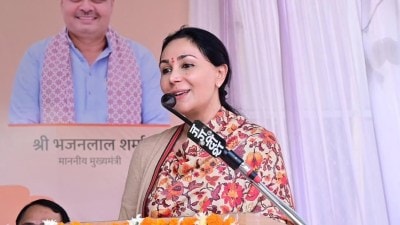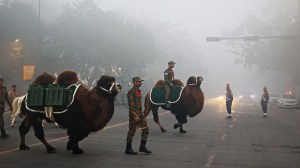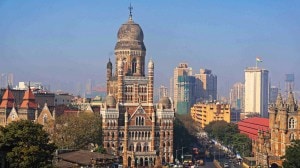Majority Rules
AFTER March 1, 2002, the words 8216;Hindu8217; and 8216;Muslim8217; have lost their potency in this Himmatnagar village. It8217;s taken...

AFTER March 1, 2002, the words 8216;Hindu8217; and 8216;Muslim8217; have lost their potency in this Himmatnagar village. It8217;s taken for granted that anyone still at the village is a Hindu. It8217;s the outcome of a synchronised plan to destroy everything 8212; houses, farms, shops, schools, offices, religious places 8212; connected with Muslims. The few houses that escaped the drive are empty shells, the handful of shops that survived are locked. Their original inhabitants, if alive, are on the run.
In a state where more than one lakh people are refugees, Sardarpur is but a microcosm of a larger demographic change. This village, and the sprawling fields surrounding it, incidentally, was gifted by the Gaekwad state to the Muslim community as a reward for their loyalty. Over the decades, it became the home of 4,600 people, Hindus and Muslims 8212; the Hindus largely employed by the Muslims 8212; and community divisions became irrelevant.
Till March 1, 2002. Thirty-three people lost their lives, 21 houses were torched, two shops and 21 stalls destroyed. Few of the 500 Muslims who once lived in 167 houses are in the village, even fewer wish to go back.
Dilawarkhan, 12, is one of the few survivors of the carnage that claimed his father Abbasmiya, mother Ruxanabanu and sister Saira 18. 8216;8216;There were many people, may be 5,000. They stoned our house and broke open the door. When we ran, some people caught hold of my sister Salma 8 and gave her electric shocks on the thigh and waist. She somehow managed to escape and we all took shelter in a pucca one-room house alongwith many others. But the mob followed us, they locked the door, poured petrol through broken windows and threw in burning material. I hid behind my father, then my mother, then under a box. I must have lost consciousness, because when I came around, I found myself under a heap of half-burnt bodies.8217;8217;
Salma and Dilawar are just two of Sardarpur8217;s Muslims who are now living in refugee camps in Sawala, Ilol and Himmatnagar. The few who returned to the village did so only to retrieve some belongings. Even the wealthy Pathans, who own acres of land and palatial houses in the village and were not targeted in the violence, refuse to go back to Sardarpur.
8216;8216;The situation is very tense,8217;8217; says A J Pathan, who went back to the village for only a few minutes. He now lives in a two-room rented house with 20 others in Sawala.
8216;8216;They cheated us,8217;8217; breaks down Nazir Shaikh, 25. 8216;8216;They killed my wife Wahidabanu, my brother Idris, after reassuring us we had nothing to fear. We believed them, after all, we8217;d lived like family for years. That evening, we were surprised when the streetlights, which hadn8217;t been working for the past four months, suddenly came on. There were some floodlights also, but we never suspected that the lights were simply picking us out.8217;8217;
Nazir Shaikh8217;s resolution never to go back to Sardarpur is echoed by Jaan Mohammed, who lost two shops to the mob. 8216;8216;We grew up together, Hindu and Muslim. Despite that, this happened. Who does one trust now?8217;8217;
Rafiquebhai Memon, who manages a relief camp in Banpur near Himmatnagar, aptly sums up the situation. 8216;8216;At least 40 to 50 people come to the camp everyday 8212; right now we house 2,400 people 8212; but few want to go back to their homes. Though the government hasn8217;t done too much for us, Sabarkantha MP Madhusudan Mistry has helped us a lot.8217;8217;
He adds, 8216;8216;We tried to send 1,000 people back home on March 15, but the riots erupted once again; at many places, people going back were threatened. So everyone came back, alongwith 1,000 more people. We were forced to relocate some to a camp in Himmatnagar.8217;8217;
In the rush of violence and insecurity, the demographic changes wrought by a riot may seem inconsequential. But in the observation lies the omen of a scary future.
- 01
- 02
- 03
- 04
- 05































